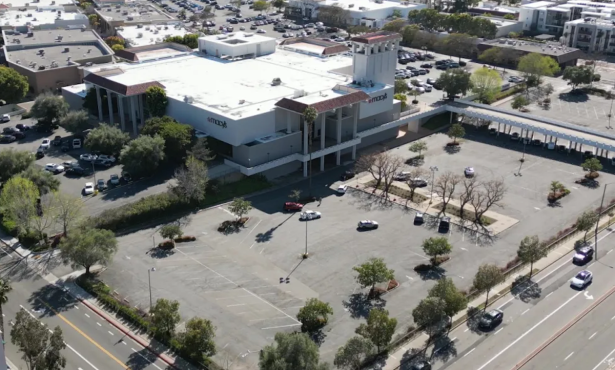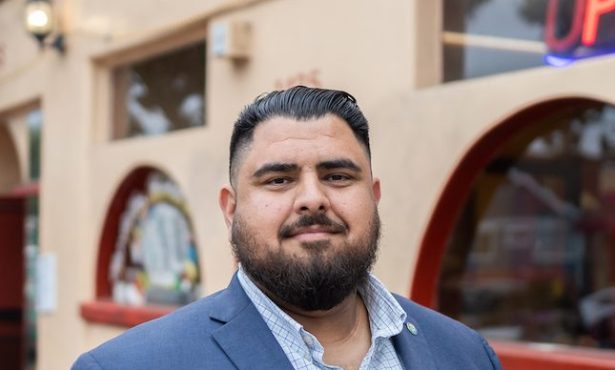Poodle | Scientists Discover Signs of Intelligence on Earth: California Governor Signs Plastics Recycling Bill
A 25 Percent Production Reduction by 2032 and $500 Million a Year to Clean Up the Mess

A LONG, HOT BUMMER: Increasingly, I seek refuge in the idiotic, the stupid, and the irrelevant. Outrage over anything else has become too dangerous. Why does my neighborhood supermarket insist on stocking its vinegar bottles on a totally separate aisle from all its cooking oils and salad dressings? And what genius forgot to add the necessary apostrophes to the words “Mens” and “Womens” painted onto the bathroom doors at some chichi restaurant where I recently ate?
We all need aggravations we can safely agitate over without fear of self-immolation. There are way too many we can’t, as with this week’s mass shooter du jour who celebrated the Fourth of July by firing off 79 rounds from his assault-style rifle in a sweet small town just outside Chicago.
Police, we have learned, had been called twice to his home in the past, once for threatening suicide, once for threatening to kill others. During those occasions, police would find he had 16 knives, a dagger, and a sword. Despite these warning signs, the shooter was allowed to purchase five firearms — one being the rifle — before turning 21. It was all perfectly legal. His father, a one-time mayoral candidate, served as his sponsor.
I can’t go there.
Until recently, I felt the same numb, dumb rage over the oceans of unnecessary plastic packaging that inevitably accompany 98.7 percent of all purchases I make. Yes, we live in an unsafe world, but do we really need to put condoms on absolutely everything? To listen to the petrochemical industry, I guess we do. The results, they say, speak for themselves. Today, there are now 8 billion of us. When I was born, there were only 3 billion.
What happened in between? The production of about 8 billion metric tons of plastics.
This past week, enviros scored a massive victory for sanity and common sense when Governor Gavin Newsom signed SB 54, which mandates the reduction of such plastic production by 25 percent by the year 2032. This bill also requires all one-time-use plastics be made of recycled materials by that date. It doesn’t outright outlaw Styrofoam, but comes pretty damn close.
In addition, the bill will require the plastic industry to pony up $500 million a year for the next 10 years to mitigate the negative impacts of its prior mass plasticization of the environment. The bill got passed — just one vote shy of unanimously — at the 11th hour and 59th minute only because enviro activists had a statewide ballot initiative all dressed up and ready to go for this November’s election. The petrochemical industry agreed not to fight the legislative fix because they didn’t want to risk losing at the ballot box. The legislative route also gave them two extra years to comply.
In years past, the enviros — in their effort to win public support — cried convincing tears about the violence being inflicted by vast ocean-borne swarms of micro-plastics upon marine mammals and otherwise innocent sea creatures. Yes, we felt awful about it. But plastics are so cheap and so damn convenient. And then there was COVID to worry about.
But more recently, activists have emphasized a more alarming factoid that requires no connection between empathy and action to be effective. Marine biologists in Australia discovered the average human now ingests five grams of micro-plastics per week. And that, it turns out, is how much an average credit card would yield if ground up into tiny micro-plastic fragments.
Sign Up to get Nick Welsh’s award-winning column, The Angry Poodle delivered straight to your inbox on Saturday mornings.
What happens to our bodies once ingesting these tiny petrochemical breadcrumbs? No one really has a clue. But one credit card’s worth a week? Probably not good.
Some within the environmental community argue that the recycling of plastics is a deliberate fraud aggressively perpetrated by petrochemical industries. (Because plastics come in an infinite variety of chemical formulations, this argument goes, they defy all economically viable methods of recycling.) This deception gives the public false comfort that something is being done with the teeming multitudes of plastic water bottles and plastic bags currently drowning the planet. In fact, California Attorney General Rob Bonta launched such an investigation this April, accusing Big Oil of concocting another Big Lie with recyclables the same way it did with climate change.
I take refuge in the assurances of Kathi King with Santa Barbara’s Community Environmental Council, who’s been bird-dogging various forms of plasticide here in Santa Barbara since 2006. King called the bill “a historical breakthrough.” Yes, it’s true that only 5 percent of all plastics are now getting recycled. But it’s also true there are 80 such recycling operations in the United States specializing in re-tooling old water bottles.
Given the global enormity of California’s economy and its recycling markets, maybe the state’s new plastics bill — which also requires producers to bear the cradle-to-grave costs of their petrochemical spawn industrial — will improve these numbers.
Only time will tell.
It’s worth noting that India banned single-use plastic bags one day after Newsom signed the plastic recycling bill. Two weeks prior, Canada banned the manufacture and importation of single-use plastics of any kind. In Santa Barbara, activists are joining Kathi King in lobbying City Hall to ban the sale of plastic water bottles at the City of Santa Barbara’s ever-expanding airport. This should be a no-brainer. Hey, in 2012, we passed a single-use plastic bag ban and the world did not come crashing to a halt. Some inconveniences — however rhetorical they might seem — are necessary to incur.
I don’t know if any of this qualifies as cause for hope. But it’s reassuring to discover intelligent life still exists on Planet Earth.
Support the Santa Barbara Independent through a long-term or a single contribution.



